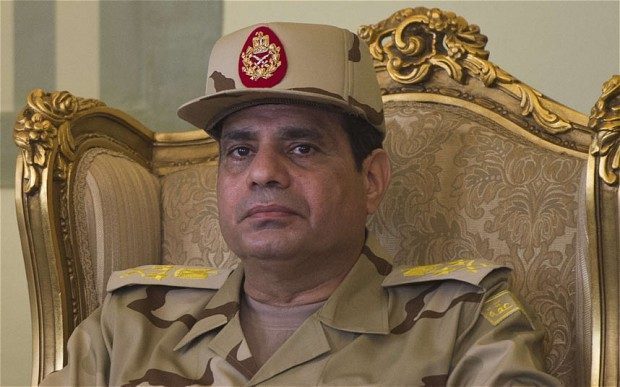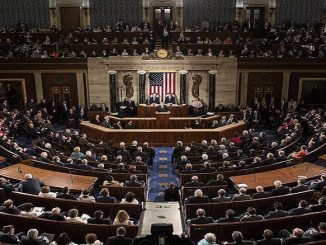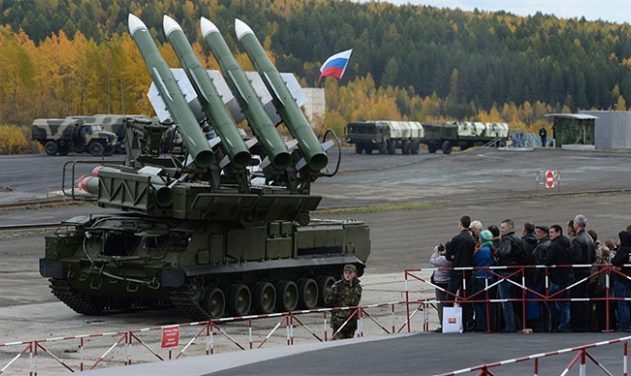
On the eighth anniversary of the 25 January revolution, a group of Egyptian opposition in exile voices concern about the state of the nation today
The Middle East Eye published today (25 January) an article written by a group of Egyptians belonging to a wide spectrum of political beliefs and traditions. The article, titled: “Egypt is not stable or free: After five years of Sisi, we demand change”, marks the eighth anniversary of the 25 January revolution. It goes as follows:
On the eighth anniversary of the 25 January revolution, a group of Egyptian opposition in exile voices concern about the state of the nation today
On 25 January 2011, the Egyptian people raised their voices to demand freedom, dignity and social justice. But the Egypt of today is not what the January revolution of 2011 was fighting for.
We come together, from different affiliations and ideologies, with grave concerns about the state of our nation. We must rescue our beloved Egypt and fulfil the Egyptian people’s hopes for a decent and free life.
It is impossible to comprehend what is going on in Egypt except via Egyptian eyes, feelings and emotions.
As Egyptians who belong to a wide spectrum of political beliefs and traditions, we have a message to the international community: beware of the man you depend on, and whom you fund and arm, to provide a “stable” government in Egypt.
To incoming US congressmen and women who will discover that any attempt to challenge the second largest recipient of US aid will be subject to a national security waiver; to European leaders who arm Egypt, we bear this clear warning: Egypt can no longer be considered a stable country. The consequences of that instability could all too easily explode on the shores of the Mediterranean.
Deteriorating economy
You need only wander the streets of Cairo to realise the extent of the internal rage and tension that could any second boil over into an uncontrollable social explosion.
It has never been this bad. The majority of Egyptians have become completely unable to maintain the economic and social levels that they used to enjoy, or to afford the most basic necessities, including food, transportation, healthcare and education.
In the five years since Abdel Fattah al-Sisi’s regime came to power, the Egyptian middle class – which had taken many years to build – has been completely eroded.
But this economic hardship was not an accident. General Sisi has long championed many misguided and costly ventures to present himself as capable of undertaking major projects, such as the “new” Suez Canal or the New Administrative Capital. The supposedly beneficial effects of these projects are yet to be felt.
After taking power, General Sisi granted extensive monopolies to military institutions, putting the private and even the public sectors in a difficult position. They could not compete with military entities able to secure projects through direct governmental orders. Investors, therefore, preferred to either take advantage of the devaluation of the local currency and engage in foreign exchange speculation, or to transfer their investments overseas.
National insecurity
The rapid collapse of the local currency should have been a warning that the management of the economy had fallen into the wrong hands. Yet, the International Monetary Fund granted Sisi a $12bn loan, with no sign of any rational economic policies to come.
It is not only the pressure on the economy that is causing hardship and frustration in the country. Action by civil society is criminalized and punished, women are imprisoned for complaining about sexual harassment or abuse, attacks on Egyptian Coptic Christians continue, with no clear strategy to protect them.
Increasingly frequent acts of terror happen to take place whenever General Sisi needs external support, and his repressive policies have led to an escalation of violence in Egypt over the past five years, more than ever before.
This is clearest when considering his counterterrorism policy, which consists of him “vowing retaliation” after an attack takes place, followed by the killing of forcibly disappeared detainees, under the pretext of them being the perpetrators. In this way, he is able to increase repression while maintaining Western support for allegedly being a partner in the fight against terrorism. But in truth, he is repressing the regime’s peaceful opponents and killing forcibly disappeared detainees.
Uniting the opposition
His lack of strategy and ability to govern is now extending to his dealings in the region. Sisi mismanaged negotiations over the Grand Ethiopian Renaissance Dam and the Nile Basin, with an adverse effect on Egypt’s share of the Nile waters. Similarly, his waiver of the Red Sea Islands – Tiran and Sanafir – to Saudi Arabia led to the loss of Egypt’s historic right of sovereignty over the Tiran waterway.
Egypt could have easily been a safety valve and a calming actor in the Middle East, but Sisi appears to be purposely pushing historic regional pressure points.
These are a few of a very long list of reasons why it is time for the opposition to Sisi’s rule to unite. This is slowly happening. It is not just those who opposed the military coup questioning Sisi’s rule; in fact, we now count among us those who were originally opposed to Mohamed Morsi’s government.
This feeling was fomented during the recent presidential election, which Sisi “won” unopposed, with 97 percent of the vote. The regime arrested all potential opposition candidates, including Ahmed Shafiq, the last prime minister under Hosni Mubarak’s rule; Sami Anan, a military man supported by some commanders; and Ahmed Konsowa, a representative of a younger generation within the military.
They, and other prominent figures, have joined Morsi and some 60,000 other political prisoners.
The future of Egypt
Building a modern civilian state – where there is no room for military or authoritarian rule – is the hope that all Egyptians are embracing. Experience has taught us that prosperity, security and progress are the products of democratic rule and civilised society. We strive for a nation where everyone is equal in rights and duties; one that embraces freedom of opinion and eschews extremism, fanaticism and intolerance; and one that fights corruption and enjoys transparency.
To realise this, world leaders must reassess their policies towards Egypt. Common interests will be achieved in the medium and long term only via cooperation with a stable regime supported by the people.
We are not inviting anyone to interfere in the affairs of our country. On the contrary, we believe that the worst form of intervention is the support of tyranny through the granting of loans that our economy cannot afford, deals that our citizens do not need, and tools for the repression and torture of our own innocent people.
What the Egyptian people really need from the world is support of their demands for a decent life, freedom and social justice. This will never be achieved with Sisi at the helm.
– Abdelrahman Youssef is a poet and political activist
– Amr Darrag is Egypt’s former minister of planning and international cooperation
– Ayman Nour is the leader of the Ghad al-Thawra party
– Dina Zakarya is a TV presenter and former Freedom and Justice Party spokeswoman
– Magda Refaa is a political activist
– Mohamed Mahsoob is Egypt’s former minister of legal and parliamentary affairs
– Nevine Melek is a lawyer and human rights defender
– Seif Eldin Abdel Fattah is a professor of political science
– Yehia Hamed is Egypt’s former minister of investment



